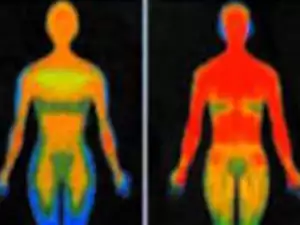Science has managed to take a peek into the Sun's soul. For the first time, scientists have observed the Sun's core, analyzing its emissions from neutrino particles.
"We have finally glimpsed the sun’s soul, " proclaimed physicist Andrea Pocar proudly, from the University of Massachusetts Amherst, who took part in the research.
The find was made using the Borexino detector in the underground laboratory Gran Sasso in Italy. Over 99% of the Sun's energy results thanks to the thermonuclear fusion of hydrogen nuclei in its core.
During this reaction, 2 protons turn into a deuterium core and release a neutrino, state in an official statement scientists from the French National Center for Scientific Research, which also took part in the research.
A neutrino particle has no electric charge and is not particularly affected by gravity. Neutrino particles rarely interact with atoms and that is why when they pass through matter, they have been observed to encounter almost insignificant resistance.
Thanks to these characteristics, the neutrino proton-proton particles produced in the sun's core "storm" through the sun's plasma in mere seconds and head toward Earth with a speed close to that of light itself. It turns out that our planet is bombarded with a huge amount of neutrinos every single second.

The energy resulting from this process is carried in the form of photons. However, it takes it between 100 000 and 200 000 years to get through the thick matter of the sun and reach its surface, and then head toward Earth, as is written in the official scientific statement.
According to the experts, the neutrino particles observed during the experiment are real tell-tale signs of what is actually going on in the sun's core. The solar energy we are feeling was in fact produced thousands of years ago.
"By comparing the two different types of solar energy radiated, as neutrinos and as surface light, we obtain experimental information about the Sun’s thermodynamic equilibrium over about a 100 000-year timescale, " said Pocar.
Furthermore, based on the data received, scientists explained that the Sun's activity has not changed.









